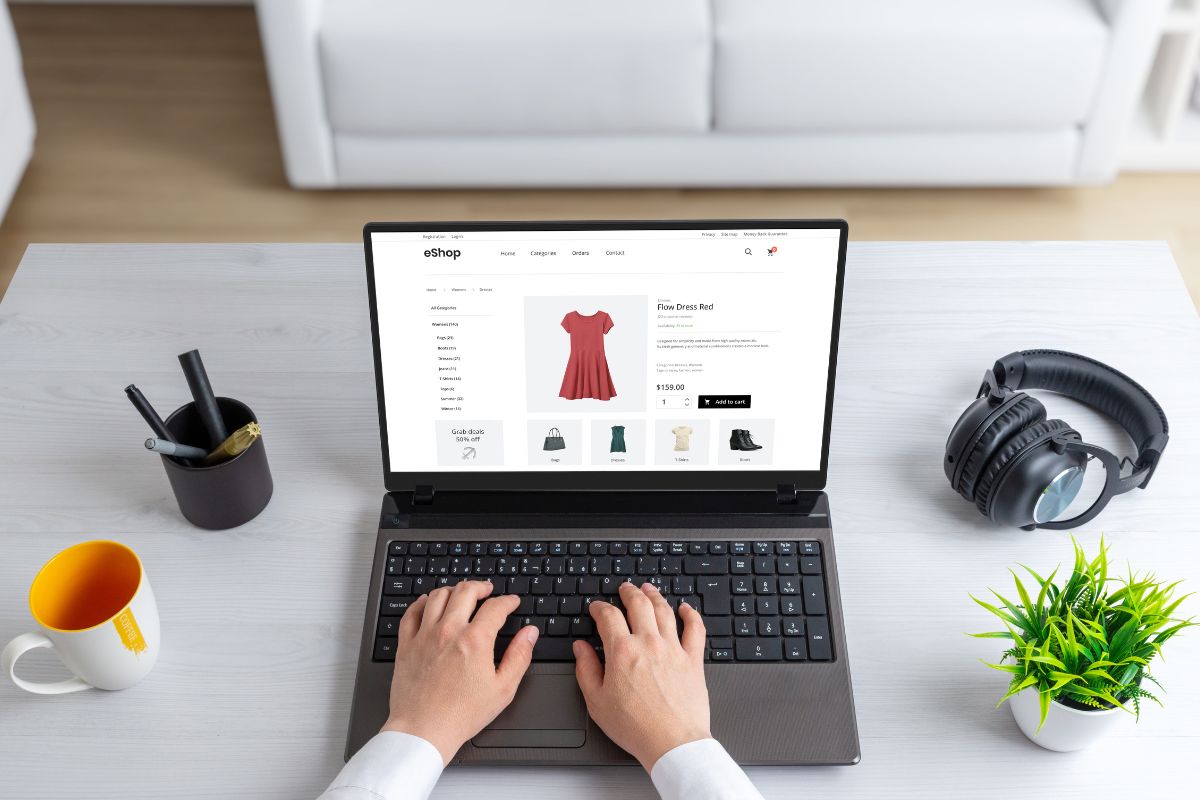Online marketplaces have become a go-to for both buyers and sellers, offering convenience, reach, and variety. From globally recognized giants to niche-focused platforms, there’s an online marketplace for every type of product and business. In this guide, we’ll explore the best online marketplaces, outlining their strengths, features, and ideal uses.
Table of Contents
Whether you’re a small business owner, an artist, or an avid shopper, this article will help you find the perfect platform for your needs.
What to Look for in an Online Marketplace
When choosing an online marketplace, it’s essential to consider several factors to ensure you get the best experience as a seller or buyer. Here are some of the key considerations:
User Base and Reach
A large and diverse user base gives sellers access to a broader audience, increasing visibility and sales potential. Global platforms like Amazon and eBay provide immense reach, while smaller niche marketplaces attract specific audiences.
Fees and Costs
Fees vary significantly across marketplaces. Most platforms charge transaction fees, while others have listing or subscription fees. Understanding the fee structure of each platform will help you maximize profit and manage costs.
Platform Features and Ease of Use
Look for platforms with user-friendly interfaces, strong seller tools, analytics, and mobile compatibility. Features like customer messaging, order tracking, and integrated payment options can streamline the selling process and enhance the buying experience.
Product Categories and Niche Options
Some marketplaces specialize in certain products or niches. Etsy, for example, focuses on handmade and vintage items, making it ideal for artists and crafters, while other marketplaces cater to general categories, offering more flexibility in product range.
Customer Service and Support
Reliable customer service and buyer protection policies ensure a smooth experience. Some platforms provide dispute resolution and returns management, which can be essential for building customer trust and handling challenges.
Best Online Marketplaces for Sellers and Buyers
| Marketplace | What’s Good for Shoppers | What’s Good for Sellers |
|---|---|---|
| Amazon | Fast delivery, Prime benefits, wide variety of products. | Access to a vast global audience, robust fulfillment options (FBA). |
| eBay | Unique items, collectibles, and auction-style deals. | Flexibility in pricing and listing options, great for niche products. |
| Etsy | Exclusive handmade, vintage, and creative items. | Ideal platform for artisans and craft sellers with a creative focus. |
| Shopify | Custom shopping experiences from independent brands. | Complete control over branding and store design. |
| Walmart Marketplace | Affordable pricing, trusted brand, easy returns. | Exposure to Walmart’s massive U.S. customer base. |
| Facebook Marketplace | Convenient local transactions, great for used goods and deals. | Simple and free to list items, good for local sales. |
| Alibaba | Bulk discounts, access to global manufacturers. | Ideal for wholesalers and B2B sellers. |
| Flipkart | Competitive pricing, localized shopping experience for Indian buyers. | Strong logistics support and high visibility in the Indian market. |
| Rakuten | Customer loyalty points, exclusive deals on premium products. | Strong European market presence, supportive seller policies. |
| Zalando | Wide selection of trendy fashion and accessories. | Excellent platform for fashion brands targeting European customers. |
| Poshmark | Easy-to-use app, great for finding secondhand fashion deals. | Social selling environment, ideal for resale and personal interaction. |
Amazon

Overview
Amazon, one of the world’s largest online marketplaces, offers a wide range of products and a massive audience. It’s popular among sellers for its high visibility, while buyers benefit from Amazon’s fast shipping and extensive selection.
Key Features
- Fulfillment by Amazon (FBA): Amazon handles warehousing, packing, and shipping.
- Amazon Prime: Offers fast shipping to Prime members, increasing appeal.
- International Reach: Amazon operates globally, allowing sellers to reach buyers around the world.
Pros and Cons
- Pros: Huge customer base, fast shipping options, trusted platform.
- Cons: High fees for FBA, competitive environment, strict seller policies.
eBay
| Feature | eBay | Other Platforms |
|---|---|---|
| Product Variety | Offers a wide range of products, including rare, vintage, and secondhand items. | Often focused on new or specific categories like handmade or wholesale. |
| Selling Flexibility | Provides auction-style and fixed-price formats for selling. | Primarily fixed-price selling options. |
| Start-up Costs | No subscription required; sellers pay fees only when they sell. | Many platforms require subscriptions or upfront fees. |
| Global Reach | Strong international buyer-seller network for diverse products. | Limited or region-specific reach on some platforms. |
| Secondhand Market | Excellent platform for reselling, collectibles, and used goods. | Minimal support for secondhand or collectible markets. |
| Pricing Opportunities | Auctions allow sellers to maximize profits by competitive bidding. | No auction system; prices are fixed or negotiated directly. |
| Customer Search Tools | Advanced search filters for finding specific or niche products. | Basic search options, less effective for unique items. |
| Market Size | Over 1.7 billion active listings. | Smaller product catalogs or more niche-focused inventory. |
Overview
eBay is known for its auction-style listings and unique product categories, making it a great choice for rare, used, or collectible items. It’s also ideal for sellers looking to reach an international audience.
Key Features
- Auction and Buy-It-Now Options: Sellers can choose between auction-style or fixed-price listings.
- Global Reach: eBay’s platform is accessible to buyers worldwide, expanding the seller’s market.
Pros and Cons
- Pros: Great for niche products and international selling, flexibility with pricing.
- Cons: Complex fee structure, intense competition on some categories.
The all-in-one Platform to start a
Print on Demand & Dropshipping Business.
Etsy

Overview
Etsy caters to a niche market of handmade, vintage, and unique goods, perfect for artisans, crafters, and sellers of rare items. Its engaged community of buyers values originality and craftsmanship.
Key Features
- Customizable Shop Pages: Sellers can design shop pages to showcase their brand and products.
- Targeted Audience: Etsy’s community of buyers actively seeks unique, handcrafted items.
Pros and Cons
- Pros: Ideal for creative products, supportive community, personalized items and shop options.
- Cons: Limited to specific product categories, additional fees for some features.
Walmart Marketplace
| Walmart Marketplace Pros and Cons | Pros | Cons |
|---|---|---|
| Customer Base | Access to Walmart’s massive and loyal U.S. customer base. | Limited to customers primarily in the U.S. |
| Brand Trust | High trust due to Walmart’s established reputation. | Sellers operate under Walmart’s branding with limited personal branding options. |
| Logistics Support | Seamless fulfillment options through Walmart Fulfillment Services (WFS). | WFS can be costly for small sellers compared to other platforms like Amazon FBA. |
| Product Visibility | Products benefit from Walmart’s built-in search and large website traffic. | Intense competition from both third-party sellers and Walmart’s own products. |
| Cost to Join | No monthly subscription fees; sellers only pay referral fees per sale. | Referral fees can range from 8%-20%, which may be higher than other platforms. |
| Seller Approval | Rigorous approval process ensures high-quality products on the platform. | The strict approval process can be challenging and time-consuming for new sellers. |
| Marketplace Tools | Offers advanced analytics and tools to track sales and inventory. | Fewer customization options for seller storefronts compared to platforms like Shopify. |
| Product Categories | Wide range of categories supported, including groceries and essentials. | Niche products may not perform as well compared to mainstream items. |
Overview
Walmart Marketplace is an option for sellers looking to leverage Walmart’s brand reputation and reach. It provides third-party sellers access to Walmart’s online customer base.
Key Features
- In-store Pickup: Offers customers the flexibility to buy online and pick up in-store.
- Strong Brand Presence: Walmart is a trusted retail brand with a large customer base.
Pros and Cons
- Pros: High brand credibility, extensive customer base, in-store pickup.
- Cons: Stringent seller requirements, competition with Walmart’s in-house products.
Facebook Marketplace

Overview
Facebook Marketplace is a community-focused platform allowing users to buy and sell within local areas. It’s a cost-effective way to reach buyers directly through Facebook.
Key Features
- Community Focus: Users buy and sell with others within their local communities.
- Integration with Social Media: Sellers can promote items through their Facebook profiles and groups.
Pros and Cons
- Pros: Free to use, local sales, no listing fees.
- Cons: Limited buyer protection, mainly local audience.
Shopify (for Building Custom Online Stores)
| Feature | Shopify | Other Platforms |
|---|---|---|
| Customization | Fully customizable storefronts to reflect your brand identity. | Limited design and branding flexibility (e.g., Amazon, eBay). |
| Brand Ownership | Complete control over your branding and customer experience. | Operate under platform branding (e.g., Walmart, Etsy). |
| Ease of Use | User-friendly interface with drag-and-drop design tools. | May require technical knowledge or lack intuitive design. |
| Scalability | Scales easily with advanced plans and features for growing businesses. | Limited scalability; growth depends on platform constraints. |
| Payment Options | Supports multiple payment gateways, including Shopify Payments. | Fewer payment options or restricted gateways (e.g., Etsy). |
| Apps and Extensions | Extensive app store for added functionality and integrations. | Limited plugins or extensions available. |
| SEO and Marketing | Built-in tools for SEO, email marketing, and social media integration. | Basic or no integrated marketing tools. |
| Product Range | Unlimited product listings with no category restrictions. | Restricted to certain categories (e.g., Etsy for handmade). |
| Support | 24/7 customer support via chat, email, and phone. | Customer support may be limited to specific hours or channels. |
| No Marketplace Fees | No per-sale fees (except payment gateway fees). | High per-sale or listing fees on marketplaces like eBay, Etsy. |
Overview
Shopify allows users to create custom online stores, ideal for businesses wanting more control over branding and customer experience. It integrates with major marketplaces, enabling multi-channel selling.
Key Features
- Customizable Storefronts: Sellers can fully customize their brand’s website.
- App Integration: A wide range of apps enhances functionality, from payment processing to analytics.
Pros and Cons
- Pros: High level of control, multi-channel options, scalable.
- Cons: Monthly fees, requires setup and maintenance.
Choosing the Right Online Marketplace for Your Needs

For Small Business Owners
Small businesses may find Etsy or Shopify a good fit due to the customization options and supportive communities. eBay is also suitable for businesses with niche products, while Facebook Marketplace is ideal for local sales.
For Large-Scale Sellers and Brands
Amazon and Walmart Marketplace offer the reach and visibility needed for large-scale sales. Their vast user bases can support high-volume operations, though fees are generally higher.
For Buyers Seeking Deals
eBay and Facebook Marketplace are ideal for deal-seeking buyers, offering discounts, used items, and unique finds. Amazon often has sales, but its pricing is more consistent.
Niche and Specialty Marketplaces
For niche needs, consider marketplaces like StockX for sneakers or Reverb for music gear, which cater to specific audiences with highly sought-after products.
FAQs
Which marketplace is best for small businesses?
Etsy and Shopify are excellent for small businesses, offering customization options and tools tailored to independent sellers.
Are there online marketplaces for specific niches?
Yes, marketplaces like StockX (sneakers), Reverb (music equipment), and Poshmark (fashion) cater to specific audiences.
How much do online marketplaces charge in fees?
Fees vary by platform and may include transaction, listing, and monthly fees. Amazon and eBay, for example, charge transaction fees, while Shopify has a monthly fee.
Can I sell internationally on these marketplaces?
Yes, most marketplaces support international selling, though you’ll need to manage shipping and any applicable import fees.
What should buyers consider when choosing a marketplace?
Consider factors like product selection, return policies, buyer protection, and seller ratings to ensure a positive experience.
Conclusion
Choosing the best online marketplace depends on your goals as a seller or buyer. Amazon and Walmart Marketplace provide reach for high-volume sales, while Etsy and Shopify cater to unique, smaller businesses. Facebook Marketplace and eBay are versatile options that attract diverse audiences. By considering factors like fees, platform features, and audience, you can find the marketplace that best suits your needs. With the right platform, you’re one step closer to successful online shopping or selling.




Sign up